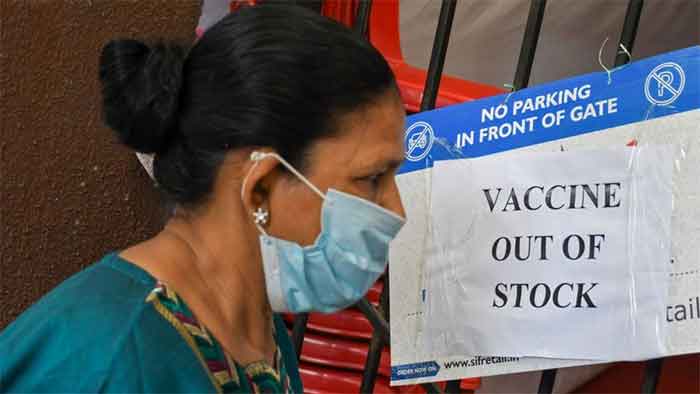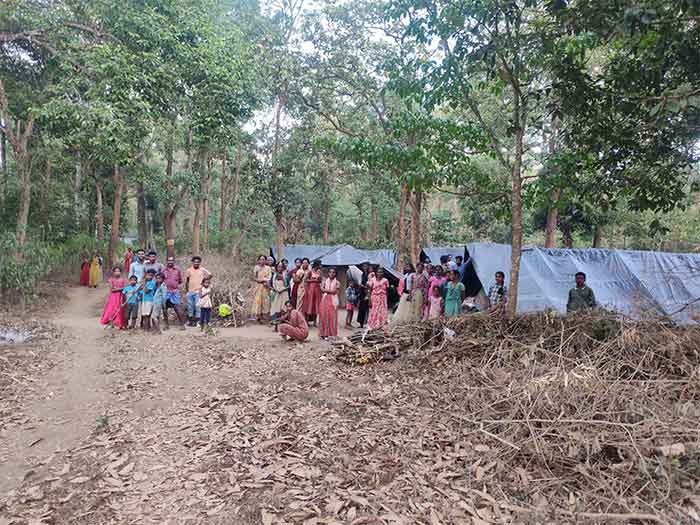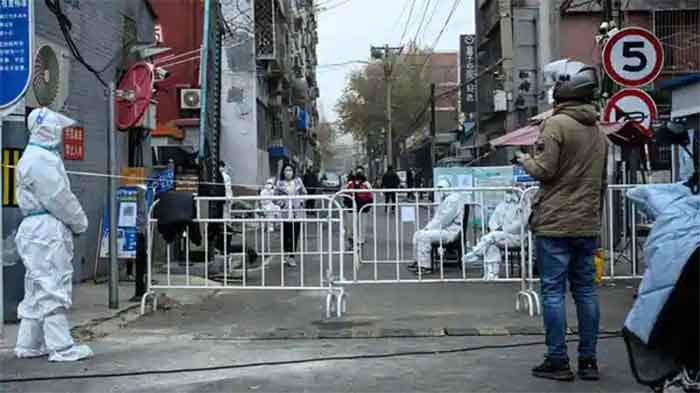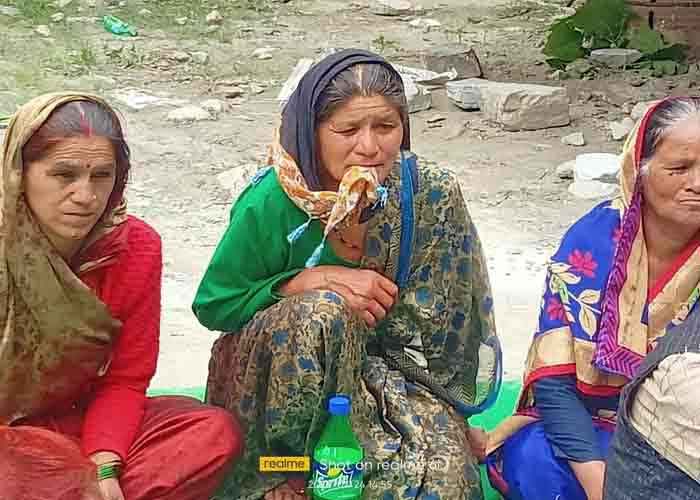
In common parlance, a “public good” refers to a commodity or service that becomes available to all members of a society with equal access, without discrimination.
There are more rigorous definitions of this in economics. However, one simple way to describe a public good is to say that it is not possible to prevent individuals selectively from consuming it, unless a “fence” is drawn around it, a term otherwise referred to as the “non-excludability” criterion.
In a suo motu Writ Petition (WP No.3/2021), the apex court of India, in their order dated April 30, 2021 defined a “public good” in the following words, with specific reference to Covid vaccination programme in India:
“The vaccinations being provided to citizens constitute a valuable public good. Discrimination cannot be made between different classes of citizens who are similarly circumstanced on the ground that while the Central government will carry the burden of providing free vaccines for the 45 years and above population, the State Governments will discharge the responsibility of the 18 to 44 age group on such commercial terms as they may negotiate. Prima facie, the rational method of proceeding in a manner consistent with the right to life (which includes the right to health) under Article 21 would be for the Central Government to procure all vaccines and to negotiate the price with vaccine manufacturers. Once quantities are allocated by it to each State Government, the latter would lift the allocated quantities and carry out the distribution. In other words, while procurement would be centralised, distribution of the vaccines across India within the States/UTs would be decentralised. While we are not passing a conclusive determination on the constitutionality of the current policy, the manner in which the current policy has been framed would prima facie result in a detriment to the right to public health which is an integral element of Article 21 of the Constitution. Therefore, we believe that the Central Government should consider revisiting its current vaccine policy to ensure that it withstands the scrutiny of Articles 14 and Article 21 of the Constitution.”
Reading this description with the “non-excludability” criterion in a country like ours, where the majority belong to the low-income groups having inadequate ability to fulfil even their basic needs, a price barrier has the effect of excluding the majority from having ready access to vaccines. That is the reason why the government should view vaccination as a “public good” and vaccinate people free of cost. In times of vaccine shortage, even if the affluent were to offer a price to get vaccinated out of turn, it would imply the low-income groups being excluded from access to a corresponding number of vaccines, creating shortages. This will indirectly violate their right to life under Article 21. It also amounts to the State violating its obligtions under Article 14 [“non-discrimination”], Article 38(2) [“equality in status”], Article 39(c) [“that the operation of the economic system does not result in the concentration of wealth and means of production to the common detriment;”] and Article 47 [“improvement of public health”].
Covid vaccination programme in India, as it has so far been managed, is a case in point
The ongoing Covid vaccination drive has so far (December 10, 2021) covered 78% of the adult population of 1034 million with the first dose and 48% with the first and second doses. If the entire adult population is to be fully vaccinated with both the doses, as it should be, the country needs 765 million doses more. Additional vaccine doses are required for covering children and pregnant women. Considering that most of the 810 million adults already covered with the first dose would soon need a booster dose, especially considering that new Covid mutants such as Omicron may trigger a virus surge, another 1034 million doses are needed urgently. The Ministry of Health & Family Planning (MHFW) seems to have delayed ordering for meeting the requirements fully, forcing the major Indian vaccine producers to cut production by half (https://qz.com/india/2100014/adar-poonawalla-might-cut-down-covishield- production-by-half/). This will lead to further vaccine shortages that will create a rush for vaccination. Unfortunately, at a time like this, MHFW continues to treat vaccine doses as a tradable commodity, to be sold partly by private agencies for a profit.
For example, the “Liberalised Pricing and Accelerated National Covid-19 Vaccination Strategy” notified by MHFW on April 25, 2021 allowed a freehand to private vaccine producers to sell 50% of the vaccine doses to agencies other than the government, which implied that the States would have to contend with only 50% of the doses available for public vaccination, free of cost. This accentuated the already acute shortage of vaccines for the low-income sections of the society who could ill- afford buying vaccine at a high price. In turn, exploiting the shortage situation, many private agencies charged exorbitant prices for the vaccine. The shortage in the public vaccination segment drove several low-income families to private vaccine providers and pay high prices. This is a classic example of a “public good” being handed over to private agencies to enable them to profiteer at the cost of the ordinary citizen.
The US CDC website (https://www.cdc.gov/coronavirus/2019-ncov/vaccines/no- cost.html) shows that “vaccines are available for everyone ages 5 years and older at no cost…vaccines were paid for with taxpayer dollars and will be given free of charge to all people living in the United States, regardless of insurance or immigration status”. In contrast, it is ironic that many low-income families in India are forced to pay a price for getting vaccinated.
When there was widespread public criticism, MHFW issued revised guidelines on June 8, 2021 reducing vaccine allocation in favour of the private sector from 50% to 25%, which still allowed private agencies to corner considerable numbers of vaccine doses and continue to sell them at high prices. In fact, by the time MHFW issued these revised guidelines, continuing Covid trauma reduced vaccine hesitancy among the public and added to the vaccine rush. While private agencies continued to exploit the situation and profiteer at will, it is the poor who suffered. The consequences of this are disastrous.
The private agencies hoarded around 5 million doses, apparently hoping to earn more and more profits, knowing well that there is a growing vaccine shortage all around (https://economictimes.indiatimes.com/news/india/govt-could-look-to-export-unused- stock-of-covid-vaccines/articleshow/87920864.cms). It created an anomalous situation. Concerned State officials, in their anxiety to ramp up vaccinations and finding that the allocations made by MHFW fell short of the demand, sought the required vaccine doses from private agencies. For example, in a bid to enhance the pace of vaccination, the Pune district administration, unable to get enough vaccine doses from the quota allotted by MHFW, sent out an appeal to private hospitals to lend vaccines. “We will return a fresh stock of vaccines as per their requirements from September 1…. a certificate would be issued to private hospitals that the district administration has borrowed vaccines from them” (https://indianexpress.com/article/cities/pune/pune-district-administration-private- hospitals-lend-covid-19-vaccines-7445288/). This shows how flawed the vaccination scheme notified by MHFW is and how it has placed the public authorities trying to subserve the public interest at the mercy of private players. This is what happens when a public good like the vaccines is callously placed in the hands of private players!
The public vs private dichotomy arises, not just in the case of vaccination, but in other cases as well. For example, testing when it is only elective can be considered as a private commodity that can be priced. But it is different when it becomes mandatory, when the State imposes it on the citizen as a necessary requirement.
Take the case of Kumbh Mela held at Haridwar in Uttarakhand in April 2021, when the Uttarakhand government allowed lakhs of pilgrims to gather daily for days
together, at a highly congested location on the bank of River Ganga for taking a holy dip in the river. In the first instance, the Uttarakhand government should not have allowed such large public gatherings when the second wave of Covid had just started wreaking havoc. This was especially so, as the permission given for the festival violated the statutory directions issued under the national disaster management law. The State government, facing considerable criticism, thought it could cover up the illegality by making it mandatory for the pilgrims to get an RT PCR test done prior to taking part in the Mela. Intending to provide testing free of cost, the authorities engaged the services of several private companies to conduct the tests at the cost of the government, based on the necessary test certification and invoices etc.
Unfortunately, even though it was the State’s tax-payers that would bear the expenditure, the concerned authorities failed to exercise due diligence in the selection of the private agencies and to supervise their work. The latter, without actually testing the pilgrims, produced false documentation to claim payments. The outcome of this scam is that lakhs of pilgrims attended the Mela without proper testing and became super spreaders of Covid all over the country. Later investigations revealed that the private test providers earned huge profits at the cost of the tax-payers and laundered their earnings to their overseas shell companies (https://www.indiatoday.in/india/story/kumbh-covid-testing-scam-officials-dialing-1- lakh-numbers-to-crack-the-case-what-has-happened-so-far-1826477-2021-07-10). It is an example of how inadequately reguated private control over public goods would adversely affect the public interest with disastrous outcomes.
The case of RT PCR testing mandated for passengers passing through Mumbai airport is yet another example of how a private party controlling a public good can hurt the public interest. According to reports (https://indianexpress.com/article/cities/mumbai/rates-of-rapid-rt-pcr-tests-at- mumbai-airport-too-high-state-to-centre-7661660/), the private management of the Mumbai Airport entrusted RT PCR testing service to a private provider for testing the passengers. This became necessary as a result of MHFW’s stipulation that all passengers passing through the airport must undergo the RT PCR test. Airports are
natural monopolies, as the passengers passing through Mumbai have no other choice than to avail the services of that airport alone. Since the management of the airport is now in the hands of a private promoter, the Central government has entered into a revenue-sharing arrangement with the private operator of the airport. The private service provider charged each passenger an exorbitant rate of Rs 4,400 per test, which was excessively high. The private operator of the airport in this case is a company belonging to the Adani Group. Finding the rate charged for the test to be very high, the Maharashtra government asked the private agency to reduce it. In response, the private agency reluctantly agreed to bring it down to Rs 3,900 per test. Not satisfied, the State government has since requested MHFW to intervene in the matter. Since RT PCR testing is mandatory, the passengers have no other alternative than to take it and it is therefore in the nature of a “public good” to be provided free of cost by the government. Apparently, the government thought that there is no obligation on their part to bear the expenditure. As a result, the burden fell on the hapless passengers. As it is to be expected, the outcome in this case has proved to be unduly expensive for the passengers and it is the two private operators who profiteered at the cost of the passengers.
The magnitude of the windfall profits that both the testing agency and the airport operator earn in this case can be estimated by comparing these prices with the prices charged for vaccine by Moderna and Pfizer in the USA. According to information available in the public domain (http://www.badania- gospodarcze.pl/images/Working_Papers/2014_No_38.pdf), the cost of Moderna and Pfizer doses at today’s (December 10, 2021) exchange rates are Rs 1816 per dose and Rs 1135 per dose respectively. The Mumbai airport prices are 214% and 344% higher than the US rates respectively. If the purchasing power in the two countries is to be factored in, the difference works out to be far higher.
This must be the situation at all international airports handed over by the government to private operators. The Ministry of Civil Aviation should investigate the implications of this fom the public interest point of view.
There is a similar situation arising in the case of PSU banks which have been asked by the RBI in recent times to get into co-lending arrangements with several NBFCs in the matter of giving loans to farmers. Consequently, a banking behemoth like SBI is forced to enter into a co-lending agreement with much smaller NBFCs having a far more restricted outreach, without any specific benefit accruing to the SBI. One of these NBFCs is owned and controlled by the Adani Group, which has borrowed heavily from several PSU banks including SBI, a situation that clearly involves a conflict of interest. Considering the vast outreach that SBI has already acquired in the farming sector and its long experience in providing rural credit, there is no plausible reason as to why the bank should tie up with a small NBFC. The sour experience in the past with private micro-finance NBFCs in AP and some other States, the usurious rates at which they charged the rural consumers and the highly objectionable means they deployed to force the small consumers to repay the loans, is still fresh in our memory. It is is strange that the banking regulator, RBI should take on the matle of an advocate for the NBFCs, when its primary role is that of regulating both the PSU banks and the NBFCs. Going by the past track record of regulation, it is doubtful whether the RBI will be able to maintain a close oversight on the co-lending operations of the NBFCs to prevent them from charging the farmers exorbitant rates of interest.
Some economists have argued that the services offered by banking institutions, predominantly owned and controlled by the State, should be deemed to be in the nature of a “public good” (http://www.badania- gospodarcze.pl/images/Working_Papers/2014_No_38.pdf). If that is so, co-lending by a PSU bank with an NBFC, could inevitably result in the latter raising unreasonable interest rate barriers to exclude the low-income farmer groups from the PSU bank’s services, which is to be expected from subjecting a public service to private control.
Those who frame public policies should understand the significance of a “public good” and the likely adverse implications of transferring public goods and services to private agencies. Indiscriminate privatisation of public assets and services can have disastrous consequences, in addition to such privatisation coming in conflict with the State’s Constitutional obligations.
E A S Sarma, Former Secretary to Government of India















































